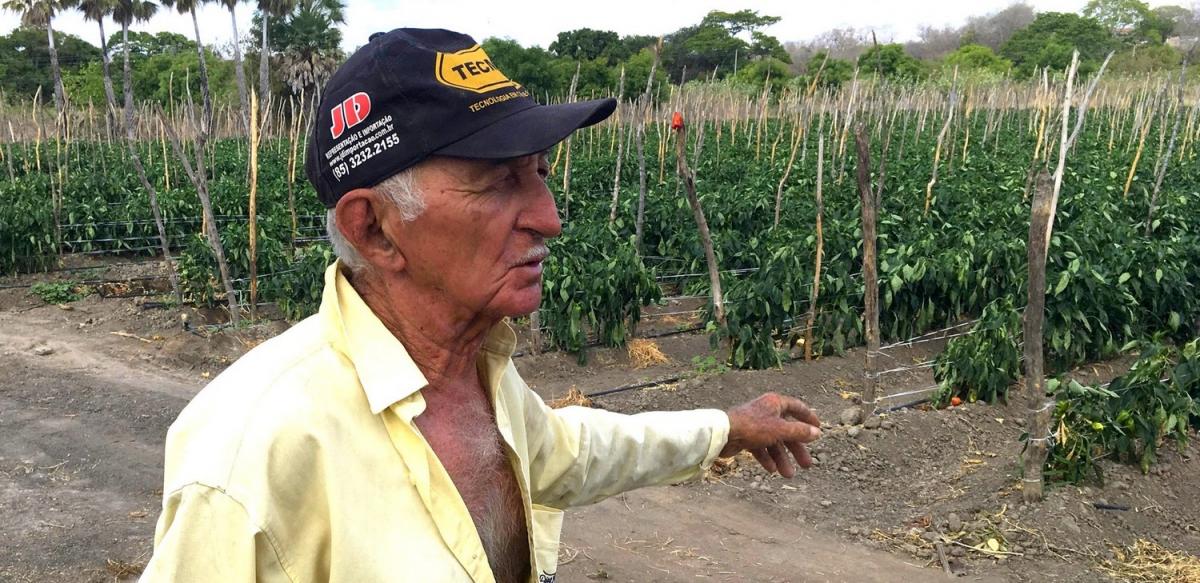- Home
- Worldwide
- CIRAD worldwide
- Projects
- SERTÕES project
Sustainability and resilience of water supplies and land in Nordeste - SERTÕES

A farmer in Ceará, Brazil, shows his crops grown with drip irrigation © J. Burte, CIRAD
Issues
The project is mobilizing the skills of French and Brazilian researchers in terms of supporting multi-level and multi-stakeholder consultation in the field of water and agroecology.
The aim is to support the co-construction of new territory-based local water governance systems, by developing participatory information platforms to support decision making on various levels. In line with the Paris Agreements, this will support the switch to low-carbon, resilient development models, as part of the agroecological transition.
Description
The first phase of the SERTÕES project, in 2021, comprised a diagnosis and an analysis, characterizing the past and present in the territories concerned. "We will be looking at water and energy issues and public policy", said CIRAD researcher Julien Burte. In 2022, the second stage will involve the construction of local pilot water governance and territorial intelligence systems. Lastly, in 2023, implementation operations are planned.
Expected results
Creation of a pilot local governance model to ensure sustainable water resource use in Nordeste, Brazil.
























